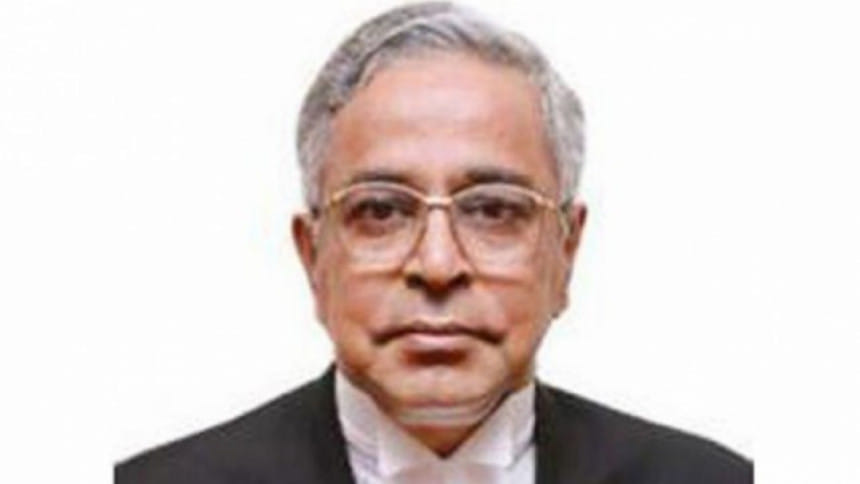Strong commitment of govt, judiciary can prevent human trafficking: Chief Justice

Bangladesh needs an integrated approach to develop public awareness against trafficking in persons, Chief Justice Syed Mahmud Hossain said today.
"We feel that strong commitment of the government and sensitised judiciary can play vital roles to prevent human trafficking," he said.
He was addressing the closing ceremony of the two-day Bangladesh E-judicial Colloquium arranged virtually.
United Nations Office on Drugs and Crime's (UNODC) "Global Action against Trafficking in Persons and the Smuggling of Migrants- Bangladesh" (GLO.ACT-Bangladesh) Project organised the colloquium.
Addressing the ceremony as chief guest, the CJ said trafficking in persons has slowly become an acute threat in Bangladesh in recent decades.
A large number of women and children are displaced and trafficked from different parts of the country.
Besides, significant numbers of people are trafficked in many other countries from Bangladesh, he said.
The CJ said the Prevention and Suppression of Human Trafficking Act-2012 provides a broad legislative framework for the prevention of trafficking, prosecution of traffickers and protection of potential victims of human trafficking.
Besides, the Constitution of Bangladesh serves as a potent anti-trafficking legislation, he said.
The constitution guarantees the right of every citizen to enjoy the protection of law, and imposes an obligation for the state to prevent violation of human rights in any form that also include human trafficking, he added.
The CJ said equipping judges and prosecutors with better understanding of law related to human trafficking and related crimes are particularly important.
"Trafficking undermines democracy, rule of law and accountability of governments," he added.
Human trafficking is a great violation of human rights and considered one of the most serious crimes under both local and international laws, he further said.
The CJ said the judiciary has to deal with and dispose of trafficking cases with utmost urgency.
The anti-human trafficking tribunals set at seven divisional headquarters disposed of 950 trafficking cases in 2019, said the CJ.
In 2019, the High Court Division of the Supreme Court in a writ petition directed the government to form a high-powered committee in order to probe the incident of human trafficking and to identify the travel agencies and human traffickers responsible for the deaths of 37 Bangladeshi nationals in the Mediterranean Sea, he added.

 For all latest news, follow The Daily Star's Google News channel.
For all latest news, follow The Daily Star's Google News channel. 








Comments